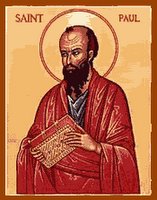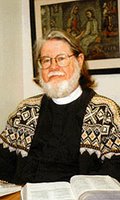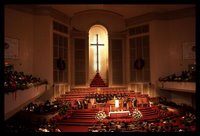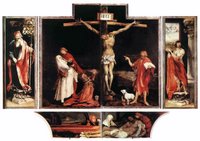Wright on Justification in Paul’s Letter to the Galatians (Part 2)
Wright points out that the language Paul uses in this letter is covenantal language from start to finish. However, his audience is primarily Gentiles. Paul contrasts Jews and Gentiles in light of the works of the Law which Paul clearly declares no one (neither Jew nor Gentile is justified through or by), and those who are the sons of Abraham (3:7). These themes/subjects are the focal point of Paul’s letter (2:15-3:29). It is here where Wright declares that Paul is demonstrating who (regardless of race – Jew or Gentile) belongs to the people of God. Paul’s language of justification is to this end.
First, Paul details his own conversion as a Jew to Christianity (2:15-21). Second, he then addresses the Galatians directly beginning in chapter three with a series of rhetorical questions relating to their own conversion to Christianity. The question then arises, if Paul is addressing a group of listeners (the letter was probably read aloud publicly) who have not already been converted, then why wouldn't Paul write as if his audience needed to be converted? Paul has already defended his gospel and his apostleship to the Churches in Galatia (1:1-2:14). Chapter three clearly indicates that this audience was “taken in” by a group of Jewish converts who demanded that these Gentiles be circumcised in order for them to be genuine converts. Paul responds, in this letter, by declaring that this is not the gospel he preached (indicating that this audience has already heard Paul's gospel and responded to it, so to speak). Thus, Wright declares, “What Paul means by justification, in this context, should therefore be clear. It is not ‘how you become a Christian’, so much as ‘how you can tell who is a member of the covenant family’.”
In chapter three from verses one to nine, Paul demonstrates, in contrast to those who claim circumcision (which is a work of the Law) is a necessary act that must be performed in order for one to be called a Christian, that both Jews and Gentiles are not justified by the works of the Law, but rather by faith. Paul then emphasizes the fact that those who actually are sons of Abraham include both Jews and Gentiles (3:7-9). From this point, Paul spends the remainder of his time and energy in this letter indicating how one can know that they are in fact a son of Abraham and thus an heir to the Kingdom of God (i.e. a Christian). Certain Jews apparently thought they had a privileged position because they were circumcised. Paul, as Wright indicates, responds by declaring that the cross has essentially “leveled the playing field” so to speak. Therefore, all who are an heir of Abraham, whether Jew or Gentile, and all “who share faith in Christ belong at the same table, no matter what their racial differences, as together they await for the final new creation.”






















